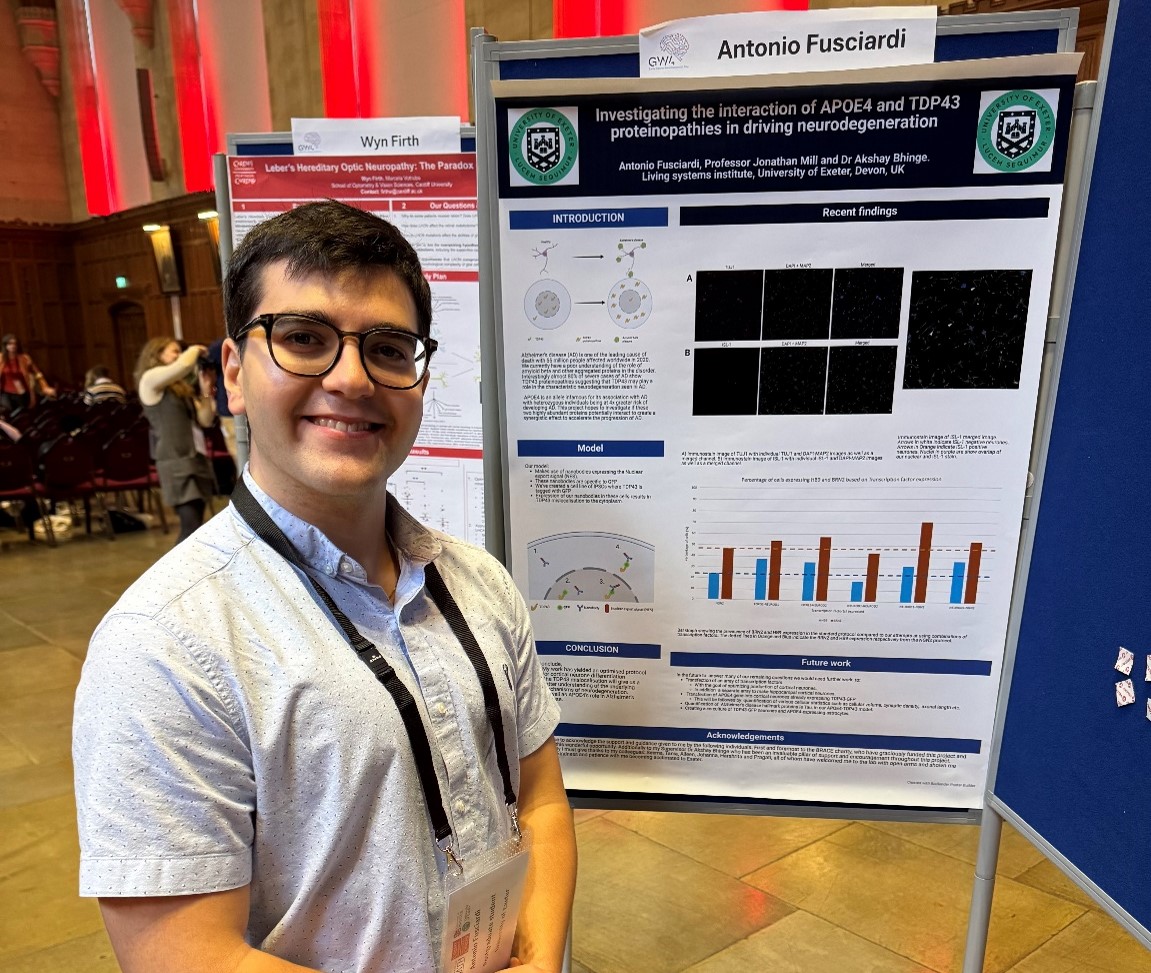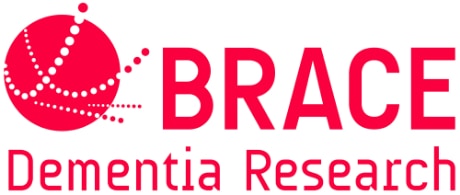
Antonio Fusciardi
PhD: University of Exeter, 2023 │ Principal Investigator: Dr Akshay Bhinge
Understanding the APOE4 gene – could it be key to treating dementia?
Summary
Dr Akshay Bhinge and his research team are studying how the movement of a protein called TDP43 might lead to the development of dementia. They think that changing the levels of this protein could be a new treatment option for dementia.
What do we already know?
TDP43 is a protein which has an important role in nerve cells (neurons). However, in dementia, this protein moves to the wrong place within the neuron and clumps together, damaging the cell.
Variations of some genes are known to increase the risk of developing dementia. One of these variations is APOE4, a variation of the APOE gene. Researchers are unsure if the changes in the location of TDP43 are linked to the APOE4 gene, so Dr Akshay Bhinge and his team are looking to find out. They think that this could explain why the movement of TDP43 is linked to dementia.
What is this project trying to find out?
Dr Akshay Bhinge and his team, supported by BRACE-funded PhD student Antonio Fusciardi, are studying the APOE4 gene to understand whether if it worsens the negative effects of TDP43 on neurons.
To study the APOE4 gene, they will introduce the gene to a specific type of neuron called cortical neurons to see the effect and determine how quickly the cells become damaged. They will then trigger the movement of TDP43 from its normal location in the cell, to where it’s found in people with Alzheimer's. They believe that the combination of both APOE4 and the change in location of the TDP43 protein will intensify the damage to neurons and eventually cause them to die.
They’re also going to look at how this affects other genes in neurons. If they find that some genes are found at a higher level, they’re going to test drugs that are being developed which target them, to see if the drug could be further developed to treat dementia.
What has been achieved so far?
In the first year of the project, Dr Bhinge and his team developed a reliable method of creating cortical neurons from donated stem cells. This means they can accurately study how the human brain is affected by APOE4.
At the moment, the team is preparing to add the APOE4 gene to the cortical neurons to study how the neurons are affected.
Why is this important?
If successful, this study could lead to new treatment options for dementia. Furthermore, the genomic data generated in this project will provide significant global benefits to dementia research by helping to identify new pathways involved in Alzheimer's disease, frontotemporal dementia, and other types of dementias.

“BRACE funding has been incredibly impactful to us in the Bhinge group, it has allowed us to perform research looking at Alzheimer’s disease from a relatively new perspective that is rapidly gaining momentum in the field. This has allowed us to explore theories and hypotheses that despite being overlooked by many researchers, may in fact hold a key aspect to understanding Alzheimer’s and neurodegenerative diseases in general. This funding has also allowed the PhD Student an opportunity to work in this exciting and highly translational field.”
Share this page
